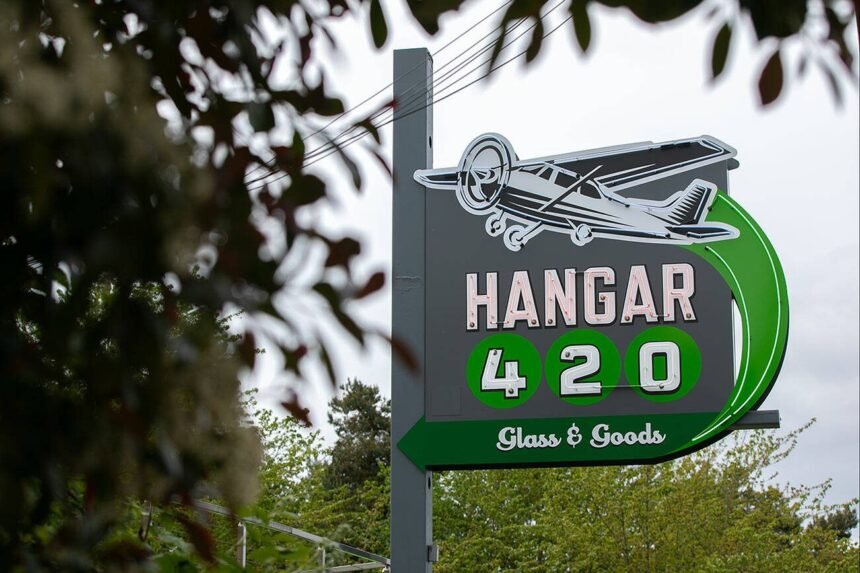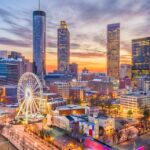LYNNWOOD — You can’t buy cannabis legally in Lynnwood right now.
But the second you step outside city limits, it’s hard to miss one of about a dozen dispensaries dotting the border.
City Council member Nick Coelho would like to see Lynnwood end its 11-year ban on cannabis sales. In April, he motioned to immediately repeal the law, but city staff overruled him. The council instead asked the city planning commission to review zoning standards before making a change. On May 13, some council members backtracked, calling for more time and information before using city resources on the issue.
It has sparked a conversation in City Hall over whether such a ban is reasonable.
Council members Coelho, George Hurst and Josh Binda favored looking into a repeal.
Council members Patrick Decker, Julieta Altamirano-Crosby and David Parshall were opposed.
Mayor Christine Frizzell supported the latter group, breaking the tie.
Hurst motioned for a discussion at a future work session, with no date mentioned. A city spokesperson didn’t immediately respond to questions about the next steps.
Voters legalized recreational cannabis in Washington in 2012, but cities could make their own laws. In 2013, the Lynnwood City Council passed a moratorium halting cannabis sales, which extended through 2015. Then, the council officially banned marijuana sales in the city.
“This isn’t about rehashing old debates or getting stuck in the past,” Coelho said at a council meeting in April. “It’s about acknowledging that right here, right now, we have a chance to move our city forward. This motion … marks a significant but procedural step in aligning our policies with the evolving needs and values of Lynnwood.”
Selling cannabis is illegal on the federal level, Decker noted. When becoming a council member he swore to uphold the Constitution, he said, which is why he wouldn’t support removing the ban.
“If the federal government wants to make cannabis usage legal, that’s the place I think it should happen,” Decker said in April. “I don’t think cities should be overriding federal law, just because some of us don’t like what the federal law is.”
Just north of town are three dispensaries on Highway 99, right across the street from each other. Lynnwood isn’t the only city in Snohomish County to ban cannabis sales. Others include Marysville, Mill Creek, Monroe, Snohomish and Stanwood.
There are “more than enough” dispensaries near Lynnwood for those who want to buy cannabis, Decker said. Any taxes the city might receive from legalizing marijuana sales would be “vastly insufficient” to cover the amount of crime that new stores would attract, he added.
Decker cited a string of crimes in the region where robbers crash a stolen vehicle through the window of a cannabis store to break in. At least one incident happened last year near Lynnwood, and another earlier this year in Everett, according to KOMO News.
Hurst, the council president, supported removing the ban, stating retail cannabis could be a good way to encourage entrepreneurship and strengthen the economy.
“As we try to support small businesses, we do need to look at how we can allow cannabis retail in a safe manner,” Hurst said in April. “If we say we want small businesses to thrive in Lynnwood, it doesn’t make sense that we are cutting off one of those businesses.”
Cannabis stores in Snohomish County raked in $48.2 million in state taxes from July 1, 2022 to June 30, 2023, according to the latest available data from the Washington State Liquor and Cannabis Board. That money is reinvested into state general funds, education, health care, enforcement of drugged driving laws and local governments — among many other things.
Across the United States, attitudes toward recreational cannabis have swung dramatically in favor over the past decade. Roughly 57% of Americans now support legalization for all uses, while another 32% feel it’s OK for medical use, according to the Pew Research Center.
In 2015, over 1,000 Lynnwood residents signed a petition to allow cannabis sales in the city. Hurst said residents would likely still vote this way.
The idea that cannabis is a major threat to public health is an “old school” way of thinking, Binda said.
“This is trying to uphold a stereotype of cannabis … and I think we need to move forward,” Binda said this month. “This is not the current age of what the situation of cannabis truly is in our community.”
Ashley Nash: 425-339-3037; ashley.nash@heraldnet.com; Twitter: @ash_nash00.
Gallery











